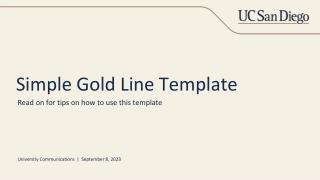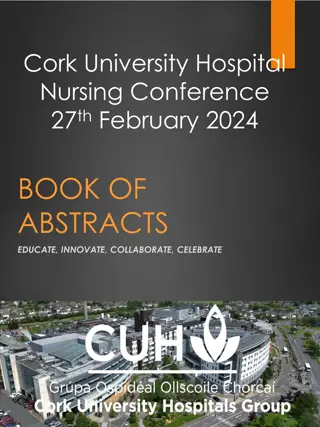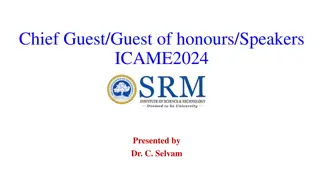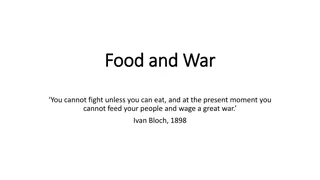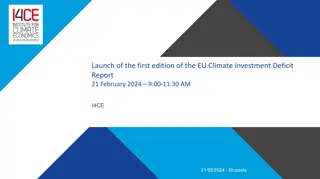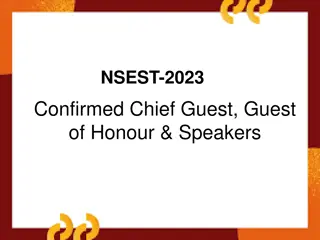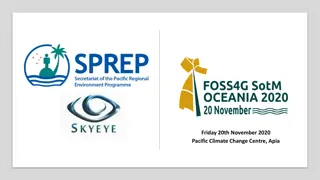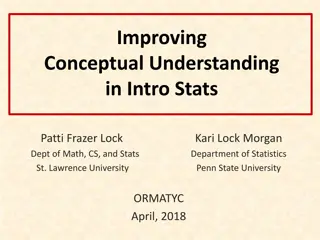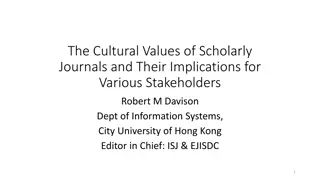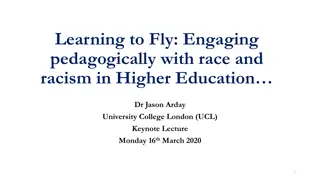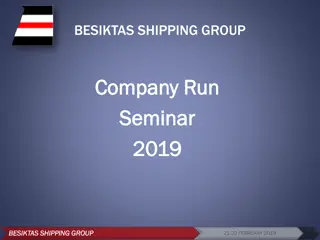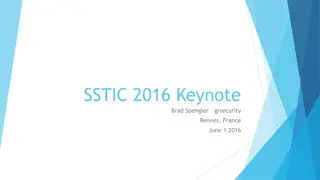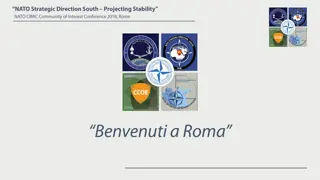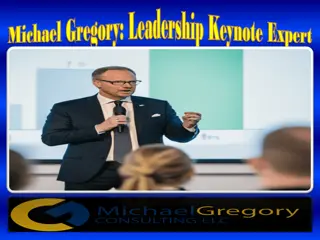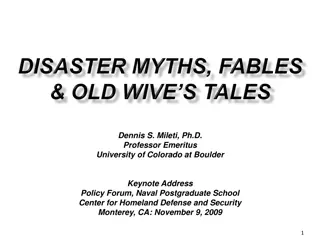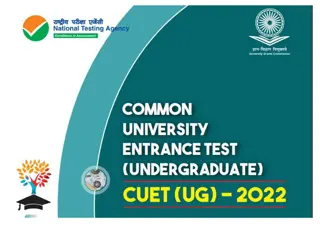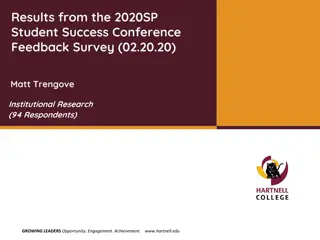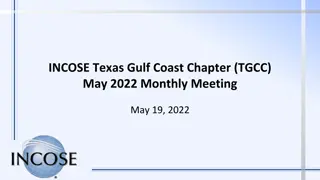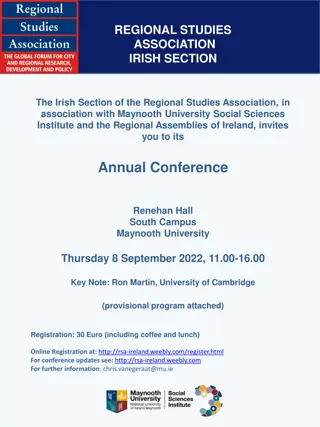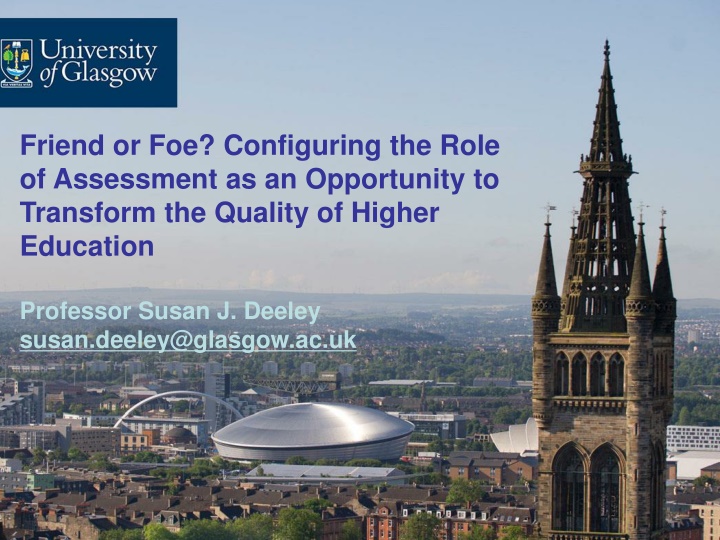
Transforming Higher Education through Assessment Opportunities
Explore the pivotal role of assessment in shaping the quality of higher education, as highlighted in Professor Susan J. Deeley's research. Delve into the nature of assessment, assessment of learning, assessment for learning, and assessment as learning, with a focus on enhancing the teaching and learning experience in academia.
Download Presentation

Please find below an Image/Link to download the presentation.
The content on the website is provided AS IS for your information and personal use only. It may not be sold, licensed, or shared on other websites without obtaining consent from the author. If you encounter any issues during the download, it is possible that the publisher has removed the file from their server.
You are allowed to download the files provided on this website for personal or commercial use, subject to the condition that they are used lawfully. All files are the property of their respective owners.
The content on the website is provided AS IS for your information and personal use only. It may not be sold, licensed, or shared on other websites without obtaining consent from the author.
E N D
Presentation Transcript
Friend or Foe? Configuring the Role of Assessment as an Opportunity to Transform the Quality of Higher Education Professor Susan J. Deeley susan.deeley@glasgow.ac.uk
Nature of assessment Situated in the classroom
Nature of assessment Situated in the classroom Taking a broader view
Nature of assessment Situated in the classroom Taking a broader view
the way learning is assessed is probably the single most important factor in influencing what and how learners learn (McMahon,1999: 550)
Assessment of learning where summative marks are given, there is (and will always need to be) a clear divide between assessor and assessed (Price et al, 2012:18)
Assessment of learning where summative marks are given, there is (and will always need to be) a clear divide between assessor and assessed (Price et al, 2012:18) summative co-assessment blurs that divide (Deeley, 2014)
Assessment for learning (Sambell et al, 2013; Nicol and McFarlane Dick, 2006) constructive feedback self regulation assessment and feedback literacies
Assessment as learning embedding assessment and feedback literacies into the curriculum using a staff-student partnership approach
Nature of assessment Situated in the classroom Taking a broader view
W Assessment and feedback literacies (Smith et al, 2013; Sutton, 2012) Aims and intended learning outcomes Standards/ rubrics Marking criteria
W a) model of a good performance b) how the student has performed c) between a) and b) (Sadler, 1989) what the student must do to bridge the gap
W Lack of clarity or understanding of marking criteria (Bloxham and West, 2004) Difficulty in understanding language of feedback or how to apply it (Blair and McGinty, 2013)
W Lack of clarity or understanding of marking criteria (Bloxham and West, 2004) Difficulty in understanding language of feedback or how to apply it (Blair and McGinty, 2013) Arop http://www.dcs.gla.ac.uk/~hcp/aropa/AropaGuide.pdf
Staff-student partnership a collaborative, reciprocal process through which all participants have the opportunity to contribute equally, although not necessarily in the same ways (Cook-Sather et al, 2014: 6-7)
Staff-student partnership a collaborative, reciprocal process through which all participants have the opportunity to contribute equally, although not necessarily in the same ways (Cook-Sather et al, 2014: 6-7)
Co-design of assessment criteria has the potential to promote learning (Carless, 2015: 139)
Co-design of assessment criteria has the potential to promote learning (Carless, 2015: 139) essays and exams (Deeley and Bovill, 2017) critical reflective journals (Deeley, 2022)
Partnerships in assessment facilitate incentives to learning it s clarified what s expected having an input was great having freedom of choice more engaged and excited about (the assessment) (Deeley, 2022)
Co-design of assessment questions using pre-set questions to adjust or redesign using set parameters or other framework
Choose a command word prefixed by critically o analyse/ assess/ discuss/ evaluate/ examine Choose a topic area o secularism/ domestic abuse/ learning disability and sexuality/ the underclass / lone parenthood Chose a focus o freedom/ equality (Deeley and Bovill, 2017: 468)
student resistance I just don t see the point it doesn t matter what I think (Deeley and Bovill, 2017: 469)
Nature of assessment Situated in the classroom Taking a broader view
staff-student partnership in assessment sharing power (Boomer et al, 1992; hooks, 1994) developing a pedagogical philosophy de-socialising to transform passivity into involvement (Shor, 1988: 106) creating an ethos of care (Sutton, 2012: 39) engaging in relational pedagogy (Bovill, 2020) developing feminist critical pedagogy (Deeley, 2022)
active student engagement and deeper learning (Cook-Sather et al, 2014; Sambell and Graham, 2011; Stefani, 1998) increases student confidence, intrinsic motivation and develops metacognitive skills enhances employability skills and graduate attributes (Deeley, 2014) inspiresstudents (Deeley, 2022; Deeley and Brown, 2014)
Configuring the role of assessment as holistic as situated in the classroom as part of a developing pedagogical philosophy
References Blair, A., & McGinty, S. (2013) Feedback-dialogues: Exploring the student perspective , Assessment & Evaluation in Higher Education 38(4): 466-476. Bloxham, S. and A. West. (2004) Understanding the rules of the game: peer assessment as a medium for developing students' conceptions of assessment , Assessment and Evaluation in Higher Education 29(6): 721-733. Boomer, G., Lester, N., Onore, C., Cook, J. (eds) (1992) Negotiating the Curriculum London: Falmer Press. Bovill, C. (2020) Co-creating Learning and Teaching St. Albans: Critical Publishing. Carless, D. (2015) Excellence in University Assessment Abingdon: Routledge. Cook-Sather, A., Bovill, C., Felten, P. (2014) Engaging Students as Partners in Learning and Teaching San Francisco: Jossey Bass. Deeley, S.J. (2022) Assessment and Service-Learning in Higher Education: Critical Reflective Journals as Praxis Palgrave Macmillan. Deeley, S.J. (2014) Summative Co-assessment: A Deep Learning Approach to Enhancing Employability Skills and Attributes , Active Learning in Higher Education 15(1): 39-51. Deeley, S.J. and Bovill, C. (2017) Staff Student partnership in Assessment: Enhancing Assessment Literacy through Democratic Practices , Assessment & Evaluation in Higher Education 42(3): 463-477. Deeley, S. J. and Brown, R.A. (2014) Learning Through Partnership in Assessment , Teaching and Learning Together in Higher Education: Issue 13. https://repository.brynmawr.edu/tlthe/vol1/iss13/3 hooks, b. (1994) Teaching to Transgress London: Routledge. McMahon,T. (1999) Using Negotiation in Summative Assessment to Encourage Critical Thinking , Teaching in Higher Education 4(4): 549-554. Nicol, D. J., and Macfarlane-Dick, D. (2006) Formative assessment and self-regulated learning: A model and seven principles of good feedback practice , Studies in Higher Education 31(2): 199-218. Price, M., Rust, C., O Donovan, B., Handley, K., Bryant, R. (2012) Assessment Literacy Oxford: Oxford Brookes University. Sadler, D.R. (1989) Formative assessment and the design of instructional systems , Instructional Science 18(2): 119-144. Sambell, K., McDowell, L. and Montgomery, C. (2013) Assessment for Learning in Higher Education London: Routledge. Sambell, K. and Graham, L. (2011) Towards an Assessment Partnership Model? Students Experiences of being Engaged as Partners in Assessment for Learning (AfL) Enhancement Activity , in S. Little (ed) Staff-Student Partnerships in Higher Education London: Continuum. Shor, I. (1988) Working hands and critical minds: A Paulo Freire model for job training , Journal of Education 170(2): 102-121. Smith, C. D., Worsfold, K., Davies, L., Fisher, R., & McPhail, R. (2013) Assessment literacy and student learning: The case for explicitly developing students assessment literacy , Assessment & Evaluation in Higher Education 38(1): 44-60. Sutton, P. (2012) Conceptualizing feedback literacy: Knowing, being, and acting , Innovations in Education and Teaching International 49(1): 31-40.

